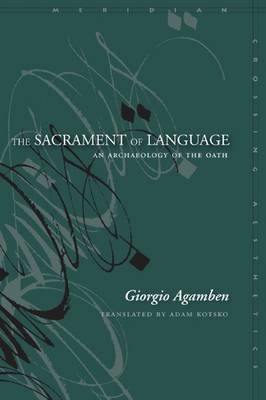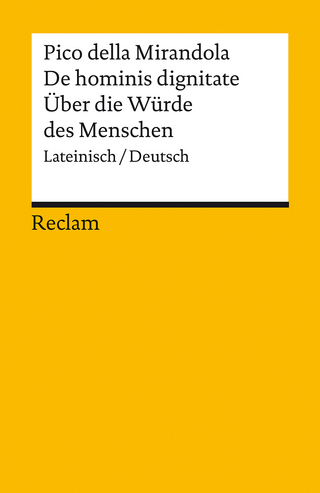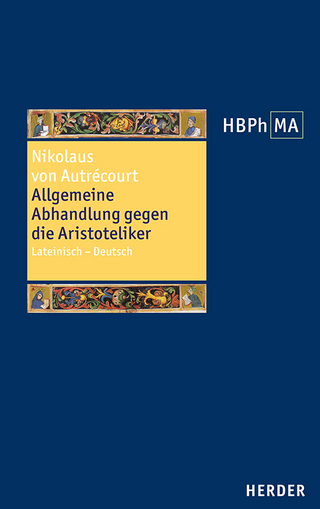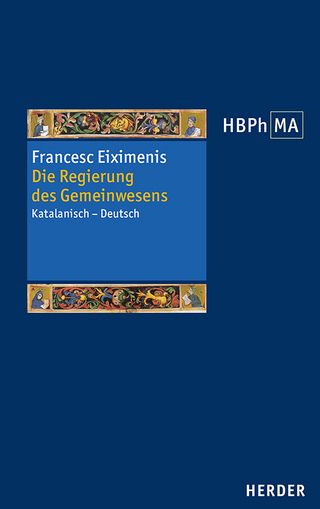
The Sacrament of Language
An Archaeology of the Oath
Seiten
2010
Stanford University Press (Verlag)
978-0-8047-6897-9 (ISBN)
Stanford University Press (Verlag)
978-0-8047-6897-9 (ISBN)
In The Sacrament of Language Agamben investigates the phenomenon of the oath, arguing that it points toward a fundamental experience of language that lies at the root of religion and law alike.
This book is a continuation of Giorgio Agamben's investigation of political theory, which began with the highly influential volume Homo Sacer: Sovereign Power and Bare Life. Having already traced the roots of the idea of sovereignty, sacredness, and economy, he now turns to a perhaps unlikely topic: the concept of the oath. Following the Italian scholar Paolo Prodi, Agamben sees the oath as foundational for Western politics and undertakes an exploration of the roots of the phenomenon of the oath in human experience. He rejects the common idea that the oath finds its origin in religion, arguing instead that the oath points toward a particular response to the experience of language, a response that gave birth to both religion and law as we now know them. This book is important not only for readers of Agamben or of continental philosophy more broadly, but for anyone interested in questions relating to the relationships among religion, law, and language.
This book is a continuation of Giorgio Agamben's investigation of political theory, which began with the highly influential volume Homo Sacer: Sovereign Power and Bare Life. Having already traced the roots of the idea of sovereignty, sacredness, and economy, he now turns to a perhaps unlikely topic: the concept of the oath. Following the Italian scholar Paolo Prodi, Agamben sees the oath as foundational for Western politics and undertakes an exploration of the roots of the phenomenon of the oath in human experience. He rejects the common idea that the oath finds its origin in religion, arguing instead that the oath points toward a particular response to the experience of language, a response that gave birth to both religion and law as we now know them. This book is important not only for readers of Agamben or of continental philosophy more broadly, but for anyone interested in questions relating to the relationships among religion, law, and language.
Giorgio Agamben, an Italian philosopher and radical political theorist, is Professor of Philosophy at the University of Venice. Stanford University Press has published eight of his previous books: Homo Sacer (1998), Potentialities (1999), The Man Without Content (1999), The End of the Poem (1999), The Open (2004), The Time that Remains(2005), "What is an Apparatus?" and Other Essays (2009), and, most recently, Nudities (2010).
| Erscheint lt. Verlag | 6.12.2010 |
|---|---|
| Reihe/Serie | Meridian: Crossing Aesthetics |
| Übersetzer | Adam Kotsko |
| Verlagsort | Palo Alto |
| Sprache | englisch |
| Maße | 140 x 216 mm |
| Themenwelt | Geisteswissenschaften ► Philosophie ► Philosophie des Mittelalters |
| Recht / Steuern ► Allgemeines / Lexika | |
| Recht / Steuern ► EU / Internationales Recht | |
| ISBN-10 | 0-8047-6897-8 / 0804768978 |
| ISBN-13 | 978-0-8047-6897-9 / 9780804768979 |
| Zustand | Neuware |
| Haben Sie eine Frage zum Produkt? |
Mehr entdecken
aus dem Bereich
aus dem Bereich
Lateinisch - Deutsch
Buch | Hardcover (2024)
Herder (Verlag)
70,00 €


